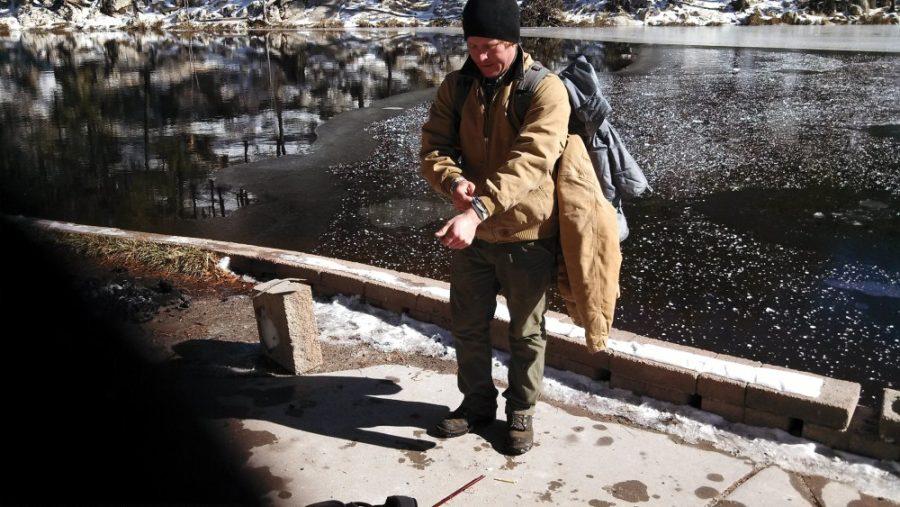A UA alumnus was among the 19 Granite Mountain Hotshot firefighters who were killed while battling the Yarnell Hill wildfire near Prescott, Ariz. on Sunday.
Garret Zuppiger, a 2008 graduate from the UA Eller College of Management, was 27. Those close to him described him as full of life, outgoing and passionate about the outdoors.
“It was pretty shocking for sure,” said Chris Mathias, an IT service management specialist for the UA’s University Information Technology Services. “…His choice of profession certainly didn’t surprise me, but seeing his name there … wasn’t pleasant at all. It was shocking to say the least.”
Mathias came to know Zuppiger as his supervisor when he worked as in the Office of Student Computing Resources during his time at the UA.
“I’m significantly older than him,” she said. “I felt like sometimes I was more of a mother and a friend than an employee to be perfectly honest.”
At work, Zuppiger had an ability to make everyone feel comfortable and at home, she added.
“He had such a way about him,” Mathias said. “He would talk to anybody, make them feel really at home, never make them feel you know, dumb as some technical people do, he was just such a great kid.”
Mathias said Zuppiger talked about his love of the outdoors, playing his guitar, sports and how he was growing a garden, including hibiscus and a mango tree.
“He was a very eclectic kid, he had a lot of different interests,” Mathias said. “I knew he was not going to ever take a desk job, I knew it, because he…wanted to be outside.”
According to Garret Picchioni, a 2012 UA alumnus, friend and former co-worker of Zuppiger’s at OSCR, Zuppiger had a big passion for the outdoors, including fishing and hiking. He was also an avid Wildcat fan, and loved the basketball and football team, he added.
“Personality-wise he was a very, very outgoing person,” Picchioni said. “…He was never shy. He could walk into a room with a group of strangers and leave [as] everybody’s best friend…”
The best times, Picchioni said, were the fishing trips with Zuppiger and their mutual friends.
“Once he moved up to Prescott, it made it a little bit more difficult for us to all get together and see each other,” Picchioni said, “And so it was just a nice time to you know, get together, catch up, tell funny stories, get into trouble, things like that. So I think that’s definitely what I’ll probably end up missing the most.”
Picchioni said the last time he saw Zuppiger was in January.
“He was just very well loved and liked,” Mathias said. “One of the best young people I ever met honestly … he was so full of life. He valued every day … a very unusual kid, in a good way.”
A search for answers
An official investigation of the deaths of the 19 firefighters was launched on Tuesday, according to a news release from the Arizona State Forestry Division.
The investigation team will review Sunday’s weather conditions, fire department records, radio logs and any other evidence that may help determine how to prevent a similar tragedy in the future, the release said.
“We’re not going to know what went wrong for many days or even weeks,” said Don Falk, an associate professor in the School of Natural Resources and the Environment, and fire expert, “As they analyze decisions made by the crew and their leadership, it’s important to remember that in general, high winds and high temperatures and low humidity, are the recipe for extreme fire behavior.”
These factors can change rapidly from one hour to the next, he added, and it is very likely that conditions were just deteriorating, but the crew thought they had more time before they needed to get out.
In the Yarnell Hill fire, there were all the factors necessary for extreme fire behavior, as well as lots of vegetation and rugged topography, making it difficult for firefighters to move around, Falk said.
It is also important to add that around that flammable area, there are a lot of buildings and houses, he said.
“Firefighters, you know, often die trying to protect structures,” Falk said, “And so perhaps we ought to be asking ourselves whether it’s worth lives to have structures built where they’re likely to be threatened by fire.”
A community still strong
Although Prescott may seem like a big city, it has a very small town feel, said Rebekah Kleinman, a UA alumna who graduated from the UA School of Journalism in 2004.
“I have not spoken to a single person who did not have some connection to one of the local firefighters in some way,” Kleinman said. “This whole town is affected by the loss, and you know, everywhere you go you hear people talking about it.”
People have written messages regarding the firefighters on their cars and trucks, and there are purple ribbons throughout the town, a symbol for wildland firefighters, she said.
“It has been amazing just to see our community come together,” Kleinman said. “The one thing that I can say is Prescott is a strong town, and it’s a close-knit town, and you know we’ll mourn together, but we’ll rise above it together too.”









